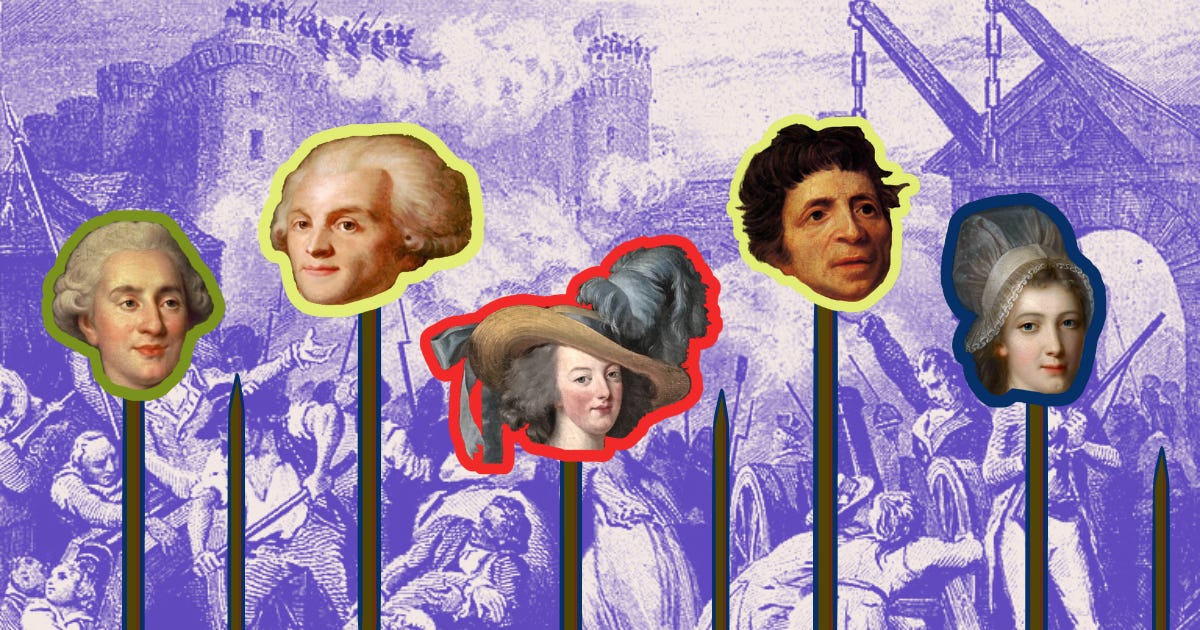Just a quick note before this week's installment. A few weeks ago, author Salman Rushdie was stabbed during a presentation at the Chautauqua Institution. It's easy to compare Rushdie and Marat — both are lightning-rod atheists who always seemed to have a massive target on their backs. Both were stabbed by young people who took matters into their own hands.
Nevertheless, Marat advocated for violence, went to great lengths to silence critics, and his relationship with freedom of speech was convenient at best. On the other hand, Rushdie published a novel that had the misfortune of being poorly received by *extreme* practitioners of Islam. No one is free from criticism, but regardless of whether his intention was to be blasphemous, satirical, critical or flattering, he had every right to write it and free from the threat of violence. He has had a bounty on his head since 1989. Luckily, he is recovering, although he will have permanent damage.
There is a massive difference, and I hope this series helps you discern who's carrying the banner of freedom and who is carrying a cheap counterfeit. Bari Weiss wrote an excellent piece on Rushdie recently. Please read it here.
Also, I’ll give a free, year-long paid subscription to the first person to reply back to this email with the names of all five… uh— heads… in the image above.
One of my all-time favorite movies is "Easy A." It was one of Emma Stone's first big hits, and I like to describe it as a modern-day take on Nathaniel Hawthorne's "The Scarlet Letter," but it's funny, no one dies, and it takes place in a high school — a perfect petri dish for all sorts of rumors to spread.
The story is about Olive Penderghast, a precocious and introverted teenager. To avoid an awkward camping trip with her rather obnoxious best friend's weird family, she invents a date so that she can stay home all weekend instead. When she returns to school on Monday, her friend keeps pressing her for details about her non-existent date. Olive finally relents and invents a story about how she lost her virginity. Since we always need to have a super-judgmental uptight character to cause friction, we find out another girl (played by Amanda Bynes) was listening from a bathroom stall and makes it clear to Olive that she should watch her back.
Naturally, the rumor mill starts churning and hilarity ensues. Part of the reason I love this movie is that it shows a few elements that propagate moral panic and social chaos in a simplified and funny way. Real life, on the other hand, gets complicated and messier.
In parts one and two of this series exploring the life and death of this lightning-rod journalist Jean-Paul Marat, we discussed the circumstances of his assassination. We analyzed his personality and how his journalistic style is similar to some of the chaotic figures we see in today's media. In part three, we will explore four elements that caused the perfect storm in revolutionary France and virtually every other witch hunt throughout history.
Let's pick apart each piece of this cocktail, shall we?
Keep reading with a 7-day free trial
Subscribe to The Charrette to keep reading this post and get 7 days of free access to the full post archives.




